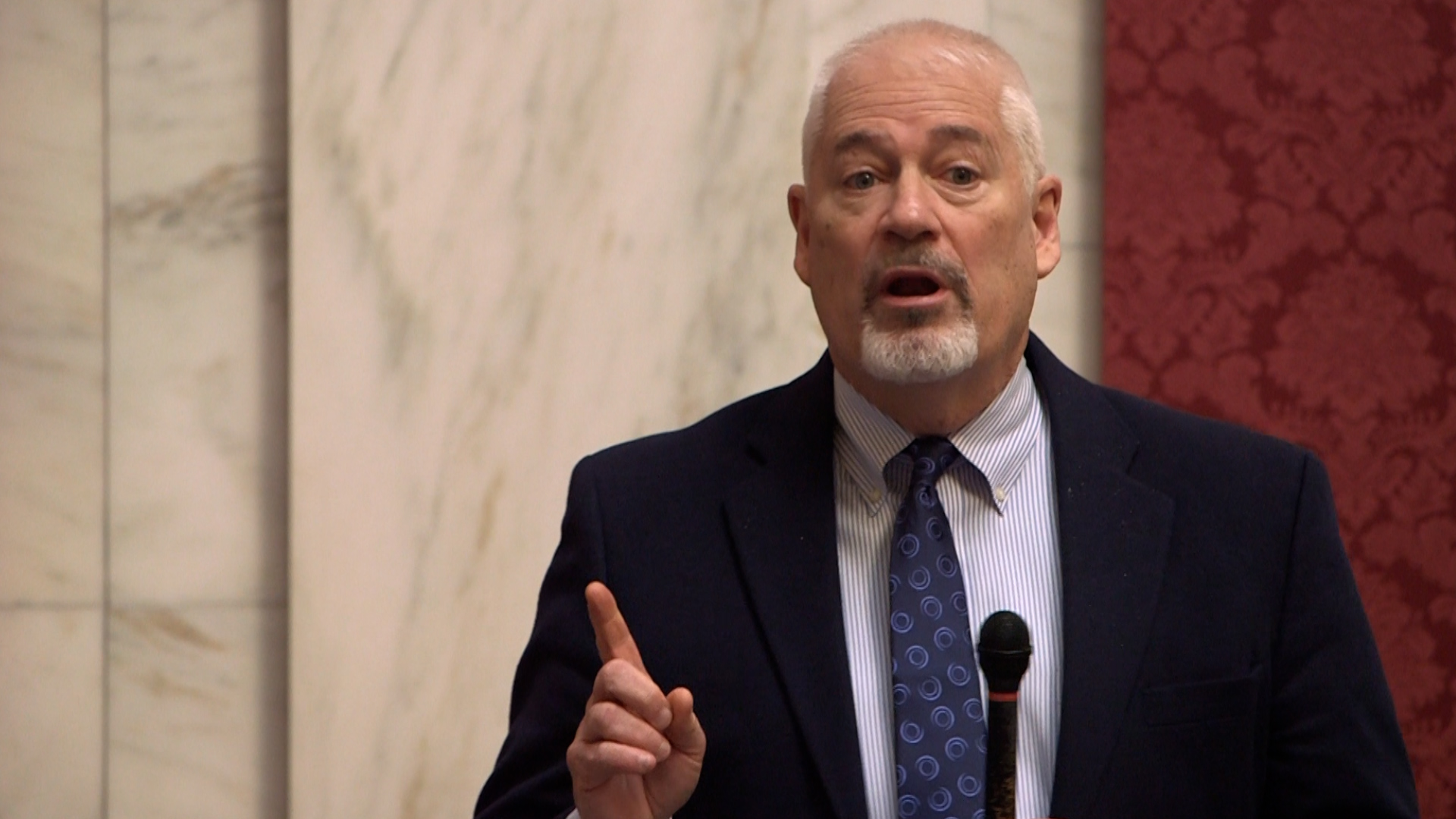When Gov. Jim Justice said in a debate last year he would sign a nondiscrimination act for gay and transgender West Virginians if it reaches his desk, some Republican leaders called the moment a “turning point” for the state’s political landscape and LGBTQ community.
This law, most recently branded the “Fairness Act,” would bar discrimination against people, regardless of their sexual orientation and gender identity, in employment, housing and public places.
Advocates say the legislation has widespread, bipartisan support this year. Yet, despite being introduced almost every session for the last two decades, the bill rarely ends up reaching the House or Senate floor for a final vote.
“We need to make sure that people know that we are a forward-thinking state,” said Andrew Schneider, executive director of the advocacy group Fairness West Virginia. “We’re generous people, we’re kind and we love each other. That’s the message we send by passing the Fairness Act.”
A Look At The Politics
This year, Del. Joshua Higginbotham, R-Putnam, announced on Twitter that he will be a lead sponsor for the Fairness Act in the House of Delegates. Last year, Sen. Majority Leader Tom Takubo was the lead sponsor for a version of the bill in his chamber.
Neither responded to requests for comment, but Schneider said both lawmakers’ support demonstrates a more widespread backing by the rest of the Republican supermajority.
However, even with five versions of a Fairness Act in the House of Delegates last year and Takubo’s name on a Senate version, none of the bills managed to pass their respective committees.
House Republicans voted down motions from House Democrats, who toward the end of the 60-day session asked their colleagues to skip committee consideration and vote on one of the Fairness bills as a chamber.
“The reason why it didn’t come up for a vote is the leadership last year decided not to bring it up for a vote,” said Schneider. “Everyone now knows someone who is a member of the LGBTQ community. It can’t be ignored or brushed under the carpet anymore.”
Speaker of the House Roger Hanshaw and Senate President Craig Blair both did not respond to requests for comment.
Fairness Ordinances In Big And Small Cities Alike
There are 14 local governments in West Virginia which, while waiting on a statewide law, have passed their own nondiscrimination ordinances. The largest of these municipalities include Charleston and Huntington, the latter of which passed an ordinance in 2013.
Since then, Huntington leaders have developed an advisory LGBTQ committee, a Human Rights Commission and a city-wide “Open to All” campaign.
Some Republican state lawmakers — including Sen. Eric Tarr, R-Putnam, and former Del. Jim Butler, R-Mason — argued last year that the Fairness Act would create more opportunities for people to file reckless legal complaints against small businesses.
“If you’re doing the right thing, you don’t have to worry,” said Huntington Mayor Steve Williams, who helped pass Huntington’s nondiscrimination ordinance during his first term in office.
Rather, Williams said, Huntington’s ordinance has attracted new residents and businesses to the city, drawn to a message of inclusion.
“What I have found is that individuals are moving to Huntington because they’re seeing that we are such an inclusive and diverse community,” Williams said. “I think it’s something that can benefit the entire state.”
But most of West Virginia isn’t populous cities like Huntington, it’s small towns.
Keyser, Mineral County, was the most recent municipality to pass a nondiscrimination ordinance in January. Council members voted on the ordinance with little fanfare.
“Keyser is the epitome of a small town,” said Curtis Westfall, a WVU student who grew up in Keyser, home to about 5,000 people. “We all know each other, sometimes for the best, sometimes for the worst. But in general, we all have a pretty good community spirit.”
Westfall asked his city leaders about an ordinance late last year, and the effort took little convincing.
“I’m a 22-year-old gay man, and obviously I’ve encountered bits of homophobia throughout my life,” Westfall said. “But, I know Keyser to be a loving and accepting place. I wanted the law to represent that.”
Support Not Unanimous
But it’s hard to ignore the places where discrimination still occurs, says Schneider.
Most recently in November, a Kanawha County judge agreed with a lawsuit from Kim Williams, who filed a grievance with the local school board after applying for a high school principal’s position and being passed over for a candidate with less experience.
The Charleston Gazette-Mail reported that a Public Employees Grievance Board judge agreed the case was likely the result of discrimination. A Kanawha County School Board member allegedly told others he wouldn’t hire Williams based on her sexual orientation.
“The vast majority of LGBTQ people are still without protections and are still vulnerable,” said Schneider. “And, many leave the state because they don’t want to have to live in constant fear of whether their boss is going to fire them or whether their landlord is going to kick them out.”
Even in Huntington, which Williams said has made huge strides in the last decade, support for LGBTQ rights is not unanimous.
Del. John Mandt Jr., R-Cabell, posted a statement opposing the bill Thursday.
Mandt resigned in 2020 after homophobic and Islamaphobic remarks he made in a private Facebook chat went viral. Although he resigned, his name was still on the ballot and his district re-elected him to office.
Mandt wrote Thursday that the bill was a “wrongful appropriation of the civil rights movement,” and it forces religious people to “choose between faith or unjust government persecution.”
This is despite the fact that last year, more than 100 faith leaders from throughout the state signed a letter to the Legislature, advocating for the Fairness Act. Members include the Rev. Ron English, president of the Charleston NAACP and a civil rights leader who spoke at Rev. Martin Luther King Jr.’s funeral.
Emily Allen is a Report for America corps member.
